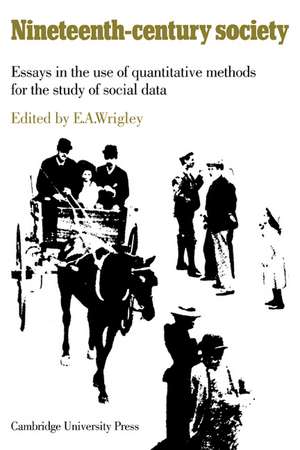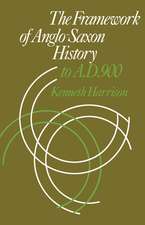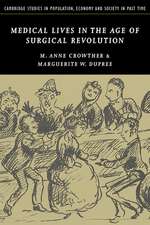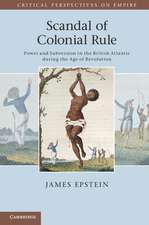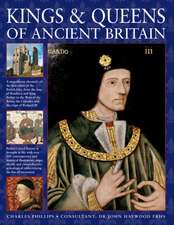Nineteenth-Century Society
Autor E. A. Wrigleyen Limba Engleză Paperback – 27 aug 2008
Preț: 453.88 lei
Nou
Puncte Express: 681
Preț estimativ în valută:
86.88€ • 94.40$ • 73.02£
86.88€ • 94.40$ • 73.02£
Carte tipărită la comandă
Livrare economică 21 aprilie-05 mai
Preluare comenzi: 021 569.72.76
Specificații
ISBN-13: 9780521073301
ISBN-10: 0521073308
Pagini: 460
Ilustrații: black & white illustrations
Dimensiuni: 144 x 224 x 18 mm
Greutate: 0.67 kg
Editura: Cambridge University Press
Colecția Cambridge University Press
Locul publicării:Cambridge, United Kingdom
ISBN-10: 0521073308
Pagini: 460
Ilustrații: black & white illustrations
Dimensiuni: 144 x 224 x 18 mm
Greutate: 0.67 kg
Editura: Cambridge University Press
Colecția Cambridge University Press
Locul publicării:Cambridge, United Kingdom
Cuprins
1. The census, 1801–1891 M. Drake; 2. The study of family structure M. Anderson; 3. Sources of inaccuracy in the 1851 and 1861 censuses P. M. Tillott; 4. Standard tabulation procedures for the census enumerators' books 1851–1891 M. Anderson; 5. Sampling in historical research R. S. Schofield; 6. The use of information about occupation W. A. Armstrong; 7. The use of published census data in migration studies D. E. Baines; 8. Criminal statistics and their interpretation V. A. C. Gatrell and T. B. Hadden; 9. The incidence of education in mid-century B. I. Coleman.
Descriere
Examines the difficulties and the opportunities which the accumulation of statistical information offers for studying nineteenth-century society in depth.
